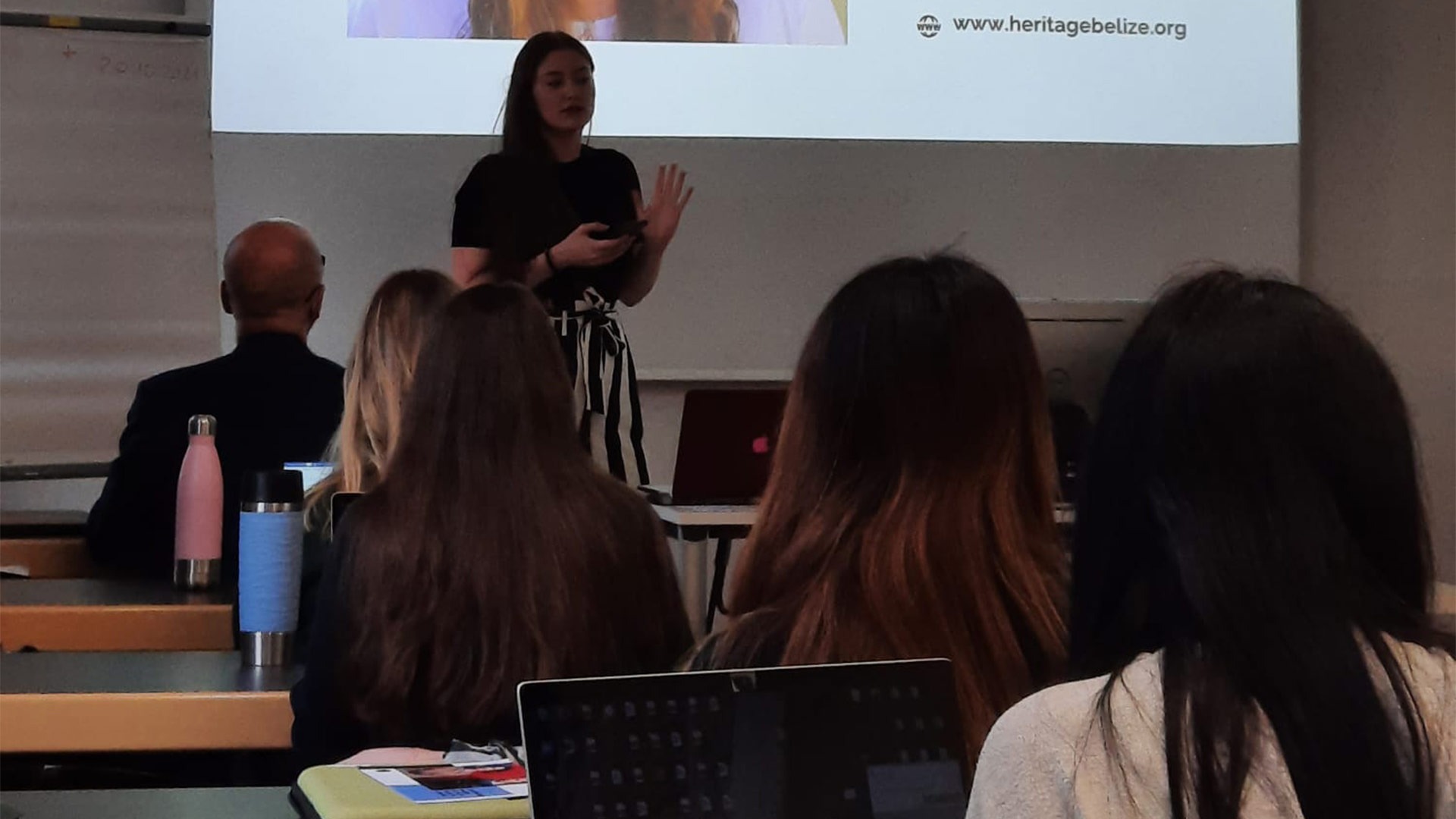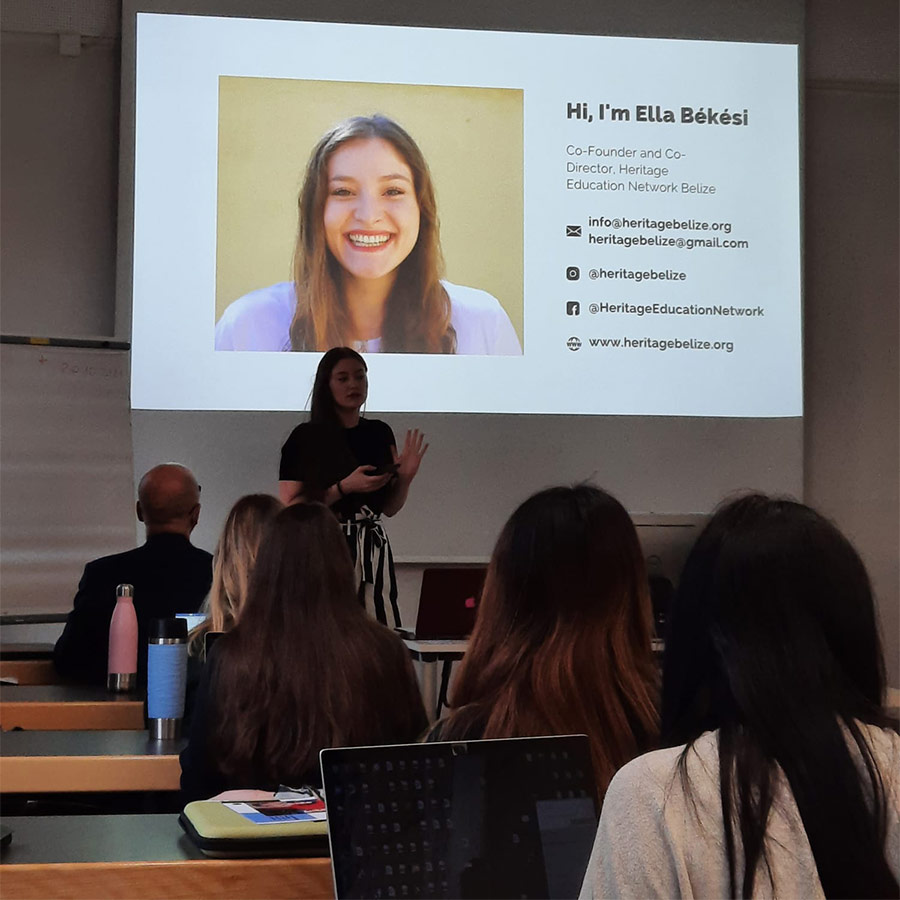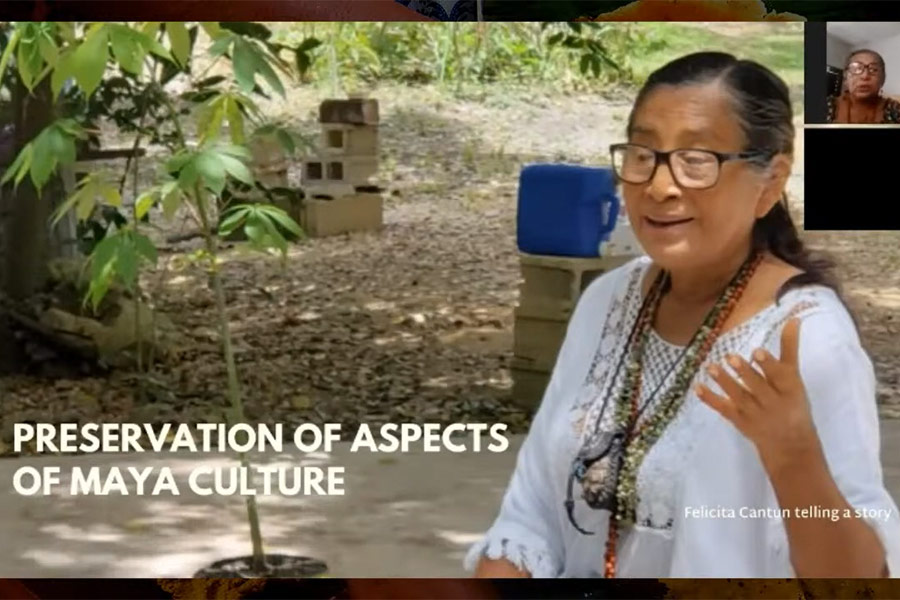
29 Nov Heritage Education Network Belize: A COVID-19 Pivot Story
With mangrove swamps, forests, Mayan ruins, amazing biodiversity and a potpourri of peoples of many different descents Belize is a dream destination. In fact according to a 2019 IMF paper, tourism contributed an estimated 41.3 percent to GDP through combined direct and indirect activities in 2017. It is no wonder that the heavy restrictions of the coronavirus pandemic slammed the industry and its players, large and small.
Four archaeologists and heritage professionals on the local scene knew they had to do something. Sylvia Batty, Ella Békèsi, April Martinez and Dr. Rebecca Friedel Juan, immediately decided to engage operators in the industry dealing with an uncertain future; from tour operators to the communities that benefited from or were impacted by tourist activities, to arts and culture practitioners. It all began with a question Ella asked them, “what can we do?” Sylvia explains:
“…what started out as a collection of videos that we posted on social media, on different thematic areas such as archaeology, cultural heritage, business support videos, evolved into Heritage Education Network Belize [HENB] and today we are an established 501(c)(3) organisation with membership in the US, membership in Belize and a regional network of supporters and volunteers.”
Their initial videos on Facebook were met with overwhelming enthusiasm. The page quickly grew a following that now stands at close to 3000 and their private Facebook Group, Heritage Education Network Belize Community now has over 600 members.
That content has covered everything from Ancient Maya Music Making, to a mental health series, to street art, Belizean films, ancient architecture and more. The NGO’s first major event, Belize Kulcha Symposium was held virtually in September 2021 over three days. “Kulcha” has a dual meaning in this case; it is the pronunciation of the Creole word “Kolcha” (meaning culture) but is also an acronym for “Keeping Up with Languages, Culture, History and the Arts”.

Ella Békési, co-director of HENB presenting at the UNESCO Chair in Information and Communication Technology in Switzerland. ©Heritage Education Network Belize

Scenes from the Belize KULCHA Symposium 2021, Ms Felicita Cantun presenting about Maya folklore. ©Heritage Education Network Belize
A quick online trip to HENB’s website reveals that the charity aims “through socially and digitally innovative and holistic and collaborative projects…to empower local communities and stakeholders to create and maintain sustainable lifeways through culture.”
The collaborative approach is a big part of what they’re doing differently in Belize by bringing together many disciplines for conversations about culture and heritage. As Ella says,
“Coming from archaeology, we always wanted to include tourism and we wanted to include economics, we wanted to include mental health because when you work [in the] field we would see how these other disciplines or how these other socio economic factors impact, not just our work but the lives of the people we work with or the people we work for whose heritage and whose history we’re digging up.”
Part of the education drive of the organisation is to equip industry workers and civilians with the latest findings related to archaeology, history and culture that might normally be confined to academic and policy-making quarters. Ella again notes that,
“…new information is not being shared with the public as efficiently as it should be. And, we noticed that a lot of times archaeological research for example, if we’re just talking about archaeological research is not being shared with the public. And so there was a lot of information that tour guides for example, could use or even individuals could use because they would be able to find out about their ancestors, or directly, one of their grandparents or great grandparents. And so we thought that this wasn’t fair.”
She sums up this thought saying “it’s not a good approach to isolate academic disciplines from the people.”
It’s perhaps no surprise that both Ella and Sylvia participated in the Pivot Event in a group of Caribbean future makers who created moonshots to re-imagine tourism in the Caribbean. The multidisciplinary and interdisciplinary approach of HENB aligned with that framework for thinking radically. But by participating, the HENB team also wanted to ensure that culture and heritage were at the heart of conversations about transforming the Caribbean. From their perspective it is often an area that is missed. They also relished the opportunity to network with peers in the region who are also championing change.
When asked what they would want the Caribbean to look like and be like in 2040, Ella pointed out that many indigenous communities are still well behind the digital transformation phenomenon further catapulted by COVID-19 and that a key area would be full access of all communities to the basic necessities which now include internet access. Sylvia hopes for a Caribbean where technology isn’t thought of as an imported thing but understood to be homegrown by the brilliant minds of the region.
The HENB team agrees that one of the biggest takeaways from the Pivot Event was the “Think big” mindset, one that they’re applying as they roll out upcoming programmes. They are now actively working on ways to distribute all of their current content in a way that is accessible for every Belizean. Thanks to volunteer help, HENB content which was in the official language of the country, English, is now being made available in Spanish, with multiple Mayan and other languages spoken in Belize on the horizon.

